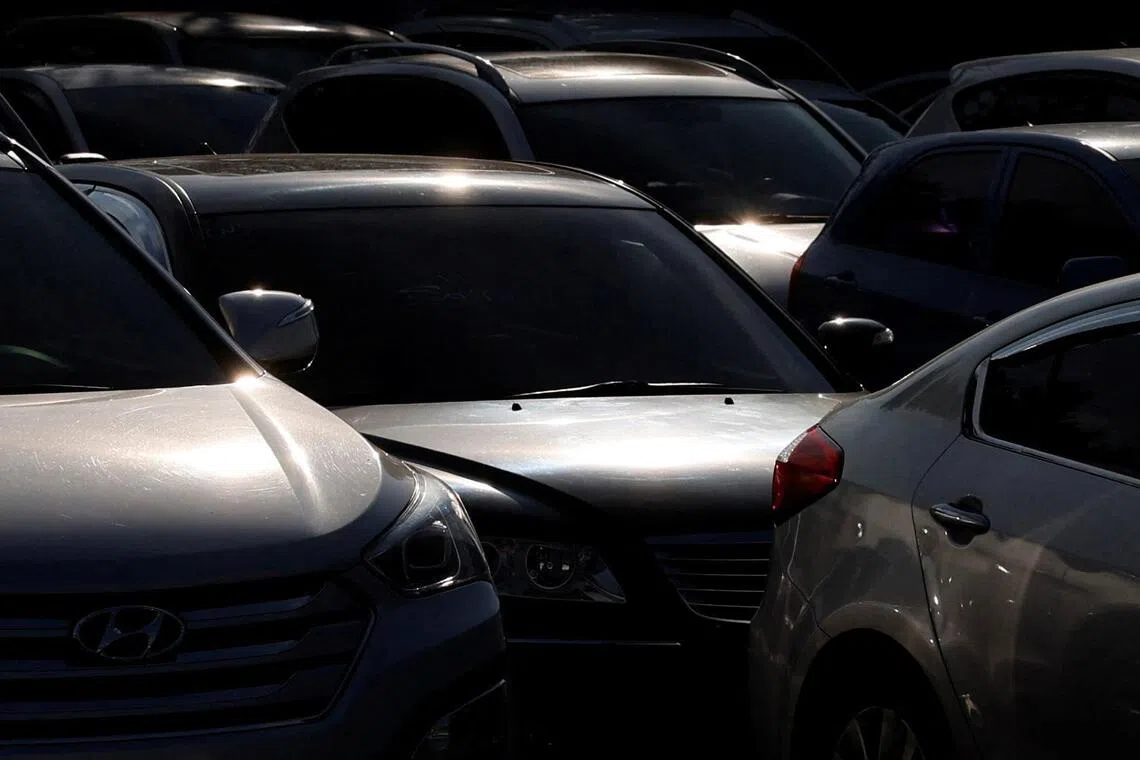South Korea submits special Bill aimed at cutting US car levies
Sign up now: Get insights on Asia's fast-moving developments

The submission was a prerequisite for reducing the levy on South Korean vehicles from 25 per cent to 15 per cent.
PHOTO: REUTERS
SEOUL - South Korea’s ruling party has proposed a special Bill to implement the country’s US$350 billion (S$455 billion) investment pledges to the US, paving the way for American tariffs on South Korean automobiles to be lowered to 15 per cent starting from November.
The submission of the Bill – which outlines how the pledged investments will be executed – was a prerequisite for reducing the 25 per cent levy on South Korean vehicles to 15 per cent, South Korean officials said.
“With the introduction of this special Bill, the conditions are now in place to retroactively apply the tariff cut on automobiles and auto parts – from 25 per cent to 15 per cent – as of Nov 1,” South Korea’s Finance Ministry said in a statement on Nov 26.
South Korea notified the US Secretary of Commerce of the move and requested a prompt publication of a notice in the Federal Register to confirm the modification to the tariffs as agreed, the ministry said.
The Bill said that a Korea-US strategic investment fund will be established, while a separate entity dedicated to running the fund up to 20 years will be set up to ensure efficient management.
The tariff reduction is critical for South Korean automakers, as the US accounted for nearly half of the US$70.8 billion in vehicle exports in 2024, government data show. Automobiles and auto parts rank among South Korea’s largest export categories to the US.
The two countries agreed to a broad framework that capped US tariffs on South Korean goods at 15 per cent in July but the 25 per cent levy on autos and auto parts has remained in place while the two countries hashed out details of the investment fund.
The deal was finalised during US President Donald Trump’s October visit to South Korea and the two sides issued a joint factsheet earlier in November outlining the trade and security agreements.
While both Japan and South Korea reached initial trade deals in July that included a drop in auto tariffs to 15 per cent, the US did not lower the duty and used that as a further leverage to finalise details of the investment funds.
In Japan’s case, it agreed to a memorandum of understanding in September that eventually led to the auto tariffs falling to 15 per cent and giving its carmakers an advantage over South Korea.
In South Korea’s case, the details took longer to hammer out as South Korea raised concerns over the impact of the funds on its currency. The US confirmation will finally give Seoul what was agreed in the summer.
The investment pledge is a key pillar of their trade deal meant to channel South Korean funds into strategic US industries including shipbuilding, energy and semiconductors. The Bill also outlined that the fund will be sourced through earnings generated from managing South Korea’s foreign exchange reserves, entrusted by the government and the Bank of Korea, and by issuing government-backed bonds overseas.
While the reduced levy represents relief compared with duties introduced earlier in 2025, it is still much higher than rates in place before Mr Trump took office in January. Exports are equivalent to more than 40 per cent of South Korea’s GDP. BLOOMBERG


